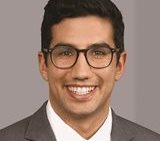Aspiring sports lawyers Marco Ciarlariello and Michael Weizel speak with four top lawyers about the realities of practice in the sports industry and find that, despite its reputation for glamour, successful sports law requires training, discipline and major league effort.
Upon completion of law school we looked for opportunities to work in an industry where we could channel our personal passions into a fulfilling career. As avid sports fans, we were immediately attracted to the prospect of working in the sports industry; an opportunity to be intimately involved with the sports we grew up playing, the teams we support, and the athletes we once aspired to be.
We envisioned ourselves working in the front office, negotiating player contracts, endorsement deals, and attending industry events alongside the major players we advise. After speaking with lawyers in the industry, it is evident that we are not t he only ones with this goal as there is a rapidly growing interest in the sports law world. David Goldstein, adjunct professor of sports law at the University of Toronto and the Chief Operating Officer of U Sports, described his students as “consistently enthusiastic, opinionated yet open-minded, and most importantly, passionate about the subject matter.” According to David, “what was once a small seminar for about 15 students has now grown to more than 30, which speaks to the attention being paid to, and the respect being given to, the area of sports law as a whole.”
he only ones with this goal as there is a rapidly growing interest in the sports law world. David Goldstein, adjunct professor of sports law at the University of Toronto and the Chief Operating Officer of U Sports, described his students as “consistently enthusiastic, opinionated yet open-minded, and most importantly, passionate about the subject matter.” According to David, “what was once a small seminar for about 15 students has now grown to more than 30, which speaks to the attention being paid to, and the respect being given to, the area of sports law as a whole.”
What many students do not fully consider, however, is the day-to-day reality that sports law actually entails, including the various skills, hours of hard work, and measure of luck that is necessary to succeed.
The first step towards a career in sports law is knowing how to start, and fortunately for us, this JUST. assignment provided an opportunity to connect with some of Ontario’s most well-established sports lawyers to discuss their experiences and provide some advice for aspiring sports lawyers such as ourselves.
What is ‘sports law'?
It is important to first understand that “sports” is not a distinct area of law in the same sense as contract, intellectual property or employment law. No two sports lawyers’ day-to-day practices are the same. As David explains, people are considered “sports lawyers because they specialize and work in the sports industry. Sports lawyers are those who put their specific expertise in a given area of law to use in the sports industry.”
While the concept of an all-purpose player-agent/lawyer negotiating contracts and endorsement deals is glamorized on television and in film, our interviewees exemplify the fact that there are many different areas of practice that can lead to fulfilling careers in the sports law industry.
Where to Start?
For students who already have the desire to enter the sports industry, the career paths of David and Elliot Saccucci – an Associate in Miller Thomson LLP’s Sports Law group – shed light on the initial steps that can make you a stronger candidate in the field. Elliot’s path to  his current position – working with professional and elite amateur athletes, and professional sports teams in salary negotiation and arbitration, endorsement and disciplinary matters – started on his first day at Osgoode Hall. From the outset, Elliot’s aspirations were clear as he geared his studies towards a career in sports law. He recalls, “I went to Osgoode largely to take Gordon Kirke’s class – which was the Sports and Entertainment class, and went to the career services department on the first day and asked ‘Who do I talk to?’” The advice that Elliot received led him to reach out and talk with several big players in the industry and started him on a network-oriented path into the sports law world.
his current position – working with professional and elite amateur athletes, and professional sports teams in salary negotiation and arbitration, endorsement and disciplinary matters – started on his first day at Osgoode Hall. From the outset, Elliot’s aspirations were clear as he geared his studies towards a career in sports law. He recalls, “I went to Osgoode largely to take Gordon Kirke’s class – which was the Sports and Entertainment class, and went to the career services department on the first day and asked ‘Who do I talk to?’” The advice that Elliot received led him to reach out and talk with several big players in the industry and started him on a network-oriented path into the sports law world.
Similarly, David also focused on taking relevant courses and began attending industry events at the outset of his law school career, such as those put on by the Sports Lawyers Association and Ontario Bar Association. David’s early commitment to sports law highlights one of the main obstacles that young students and associates have to face when trying to enter the industry. “There’s a sacrifice to it,” David says, noting that attending these sports conferences and networking in the industry “takes up time where you are not billing in your primary area of practice or developing connections in that area, and it can take time from your personal life too.” David emphasized that it is at these early stages that young lawyers needs to determine how important breaking into the sports industry really is to them.
While David and Elliot arrived at their current positions through different routes, they each highlighted the same underlying principle that rings true for any profession – hard work throughout their formative years as law students and young associates was essential to their success.
Developing a Skill Set
Although developing connections and inroads into the industry early on in your career is important, a different kind of sacrifice is also necessary. Sports lawyers must also focus on developing the fundamental legal skills that form the foundation of a successful career in law.
 Samantha McWilliams – Legal Counsel for Rogers Communications – highlights the importance of skill development in the early stages of a lawyer’s career. Samantha tells the articling students and young lawyers that she mentors, “not to be in a rush and to take the time to develop the fundamental legal competencies.” She emphasizes the value of learning the ins and outs of your practice area and of taking advantage of all the learning opportunities that are presented to new lawyers. Samantha has reflected on her time doing general corporate commercial work in the early stages of her career, and considers her experiences during her formative years in the profession as a pivotal part of her development.
Samantha McWilliams – Legal Counsel for Rogers Communications – highlights the importance of skill development in the early stages of a lawyer’s career. Samantha tells the articling students and young lawyers that she mentors, “not to be in a rush and to take the time to develop the fundamental legal competencies.” She emphasizes the value of learning the ins and outs of your practice area and of taking advantage of all the learning opportunities that are presented to new lawyers. Samantha has reflected on her time doing general corporate commercial work in the early stages of her career, and considers her experiences during her formative years in the profession as a pivotal part of her development.
Jessica Fingerhut began her legal career as an associate in the Business Law group of a full service firm in Toronto. After almost three years in private practice, Jessica joined the Toronto Blue Jays Baseball Club where she is now the Director of Legal and Government Affairs and Legal Counsel. Jessica has found that the level of training she received in private practice was fundamental to the development of her contract drafting and issue spotting skills, which she believes gave her the necessary foundation to adapt and contribute to the Blue Jays front office.
 According to Jessica, seeking out opportunities to gain experience in areas that are of particular interest to entertainment businesses, such as intellectual property law, has given her valuable skills that she has been able to use in her sports law practice. She explains, “my responsibilities include protecting the Club’s brand and intellectual property rights. Whether it’s drafting licence agreements to permit third parties to use our trademarks and logos or assisting in the enforcement of our rights against counterfeiters whose activities tarnish our brand and mislead consumers into purchasing merchandise that is not authentic, a solid foundation in intellectual property law as well as extensive experience in drafting licence agreements has been invaluable.”
According to Jessica, seeking out opportunities to gain experience in areas that are of particular interest to entertainment businesses, such as intellectual property law, has given her valuable skills that she has been able to use in her sports law practice. She explains, “my responsibilities include protecting the Club’s brand and intellectual property rights. Whether it’s drafting licence agreements to permit third parties to use our trademarks and logos or assisting in the enforcement of our rights against counterfeiters whose activities tarnish our brand and mislead consumers into purchasing merchandise that is not authentic, a solid foundation in intellectual property law as well as extensive experience in drafting licence agreements has been invaluable.”
Making the Right Connections and Garnering Name Recognition
Samantha believes that one of the most important things that you can do to help build a career in sports is to network effectively. She explains that “attending networking events in your areas of interest as a student or associate can be critical to your success in the industry.” In Samantha’s view, networking effectively “isn’t about meeting hundreds of people and collecting a pile of business cards that you’ll never look at again, it’s about putting in an effort to build quality relationships with the few people you meet that you really connect with.” To this day, Samantha continues to regularly schedule meetings with colleagues in the industry and credits her solid network with opening the door to many interesting career-building opportunities.
Although networking effectively is an important way to make connections, there are a variety of other ways to be active in the industry. At the beginning of Elliot’s career, he chose to leave a comfortable position at one of the seven sisters for an opportunity to start a practice in sports law from scratch at a boutique law firm. As a first year lawyer, Elliot began contributing to popular sports blogs and news sites as an author and legal commentator. This allowed him to demonstrate a strong understanding of the prevalent legal issues in sports law world while simultaneously building a strong presence within the industry
Each of the interviewees emphasized the importance of continuing to reach out to people in the industry for advice. Samantha explains that experts in the industry will be willing to speak with you if you show a genuine interest in their work. David echoes these sentiments in speaking about the experience he gained from attending conferences over the past few years. He says that “when you’re a regular attendee at these events, people will recognize you as a familiar face and know that you’re committed; it is perseverance and determination that will ultimately separate those who are able to successfully enter the industry from the rest of the pack.”
Excelling in the Industry
Entering into the industry is the first major hurdle that young lawyers have to pass, but building a practice once that has been accomplished presents its own unique challenges that are new to many in the legal community.
Jessica, David and Samantha, who have all left private practice, described the transition as a steep learning curve in unfamiliar territory. Jessica explains that in her role with the Blue Jays, she was able to adapt to her new position by “immersing [herself] in the business and learning all about the various departments within the organization like ticketing, marketing, and sponsorships, with the aim of attaining a deep understanding of their operations.” Building a strong understanding of the business operations of the organization as well as an understanding of the underlying needs and goals of the Club has helped her add value to the team.
As part of Samantha’s role at Rogers, she provides support to the business teams that monetize the NHL broadcasting rights held by Rogers. Although Samantha had a specific legal expertise in media rights and host broadcasting, she found that developing the same core skills as her colleagues who work on the business end of deals was key to her becoming a more productive and valuable member of the team. With this goal in mind, early in her in-house career she completed the Media Leadership Program at Schulich and continues to regularly attend both legal and business conferences that focus on the core business skills (such as communication, marketing and finance) essential for any senior executive position.
The final point that our interviewees emphasized was that we should continue to seek out new hands-on experiences that will allow us to add to our skill sets. Elliot describes his pro bono representation of amateur athletes in proceedings before the Sport Dispute Resolution Centre of Canada as an experience that has allowed him to continue developing the specialized skills and background knowledge necessary to better represent his clients’ needs. As a lawyer who took on the challenge of building his sports law practice from scratch, Elliot stressed the importance of being proactive by actively seeking out work that will allow you to develop new competencies even after you have managed to establish yourself.
The Next Steps
After discussing the world of sports law with four professionals in various branches of the industry, one fact is abundantly clear – nothing comes easy in this line of work. Those that succeed in the industry are those who take a chance and put themselves out there, dedicate their time to the craft, and persistently work on bettering themselves as professionals and as members of the sports law community. While all our interviewees emphasized the importance of developing their legal skills at the early stages of their careers, the important role that networking plays in breaking into the industry cannot be overemphasized. Today’s industry leaders got to where they are by talking to those that came before them and by demonstrating their determination to become players in the game. Tomorrow’s leaders will be the ones who commit themselves to doing the same.
About the authors
 Marco Ciarlariello is an articling student in the Business Law Group at Cassels Brock & Blackwell LLP. His areas of focus include sports & entertainment, intellectual property, mergers & acquisitions, and advocacy. Marco graduated from the J.D. program at Osgoode Hall Law School in 2016. At law school, he was an executive member of the Osgoode Entertainment and Sports Law Association. Marco’s interest in sports law stems from his experience competing at the national level in Motocross for many years. mciarlariello@casselsbrock.com https://ca.linkedin.com/in/marco-ciarlariello-b94596ba
Marco Ciarlariello is an articling student in the Business Law Group at Cassels Brock & Blackwell LLP. His areas of focus include sports & entertainment, intellectual property, mergers & acquisitions, and advocacy. Marco graduated from the J.D. program at Osgoode Hall Law School in 2016. At law school, he was an executive member of the Osgoode Entertainment and Sports Law Association. Marco’s interest in sports law stems from his experience competing at the national level in Motocross for many years. mciarlariello@casselsbrock.com https://ca.linkedin.com/in/marco-ciarlariello-b94596ba
 Michael Weizel is an articling student in the Business Law Group at Cassels Brock & Blackwell LLP. Michael’s areas of focus include public and private mergers & acquisitions and sports & entertainment, with a particular interest in the technology and start-up sectors. Michael completed his J.D. and M.B.A. degrees at Queen’s University Faculty of Law and Queen’s Smith School of Business. mweizel@casselsbrock.com @mweizel www.linkedin.com/in/michael-weizel
Michael Weizel is an articling student in the Business Law Group at Cassels Brock & Blackwell LLP. Michael’s areas of focus include public and private mergers & acquisitions and sports & entertainment, with a particular interest in the technology and start-up sectors. Michael completed his J.D. and M.B.A. degrees at Queen’s University Faculty of Law and Queen’s Smith School of Business. mweizel@casselsbrock.com @mweizel www.linkedin.com/in/michael-weizel